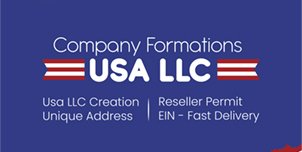What is an LLC? Understanding the Basics of Limited Liability Companies
What is an LLC? Understanding the Basics of Limited Liability Companies
When starting a new business, choosing the right legal structure is crucial. One popular option is the Limited Liability Company, commonly known as an LLC. This article will explore the basics of an LLC, including its full form, benefits, formation process, and registration requirements. By understanding these fundamentals, entrepreneurs can make informed decisions about whether an LLC is the right choice for their business.
What is an LLC?
The full form of LLC is "Limited Liability Company." An LLC is a hybrid business entity that combines elements of both corporations and partnerships. It offers the limited liability protection of a corporation while providing the flexibility and tax advantages of a partnership. This makes LLCs an attractive option for many entrepreneurs, especially those starting small to medium-sized businesses.
Benefits of an LLC
Limited Liability Protection
One of the primary advantages of an LLC is that it provides limited liability protection to its owners, known as members. This means that members are not personally liable for the company's debts and liabilities. Their personal assets are protected in case the business faces financial difficulties or legal issues.Pass-Through Taxation
Unlike corporations, LLCs typically enjoy pass-through taxation. This means that the company's profits and losses are passed through to the members and reported on their personal tax returns. This avoids the double taxation that occurs with corporations, where profits are taxed at both the corporate and individual levels.Flexibility in Management
LLCs offer flexibility in how they are managed. Members can choose to manage the LLC themselves (member-managed) or appoint managers to handle the day-to-day operations (manager-managed). This allows for a tailored management structure that suits the needs of the business.Simplicity in Compliance
Compared to corporations, LLCs have fewer formalities and compliance requirements. This makes the administrative burden lighter, allowing business owners to focus more on running their business.
LLC Formation Process
Forming an LLC involves several key steps. Here’s a general overview of the LLC formation process:
- Choose a Business Name: Selecting a unique and appropriate name for the LLC is the first step. The name must comply with the state’s naming rules and should not be already in use by another business. Additionally, the name must include the words "Limited Liability Company" or abbreviations like "LLC" or "L.L.C."
- File Articles of Organization: The next step is to file the Articles of Organization with the appropriate state agency, usually the Secretary of State. This document includes essential information about the LLC, such as its name, address, and the names of its members or managers.
- Appoint a Registered Agent: An LLC must have a registered agent in the state of formation. The registered agent is responsible for receiving legal documents and official correspondence on behalf of the LLC.
- Create an Operating Agreement: While not always legally required, an operating agreement is a crucial document that outlines the ownership structure, management, and operating procedures of the LLC. It helps prevent conflicts among members and provides clear guidelines for the business’s operation.
- Obtain Necessary Licenses and Permits: Depending on the nature of the business and its location, the LLC may need to obtain various licenses and permits to operate legally. It’s essential to check with local and state authorities to ensure compliance.
- Get an Employer Identification Number (EIN): An EIN, also known as a Federal Tax Identification Number, is required for tax purposes. It is obtained from the Internal Revenue Service (IRS) and is necessary for opening a business bank account, filing taxes, and hiring employees.
LLC Registration in the US
LLC registration varies from state to state in the US. While the general steps are similar, each state has its specific requirements and filing fees. It’s essential to consult the specific guidelines of the state where you plan to form an LLC. Most states offer online filing options, making the process straightforward and convenient.
Conclusion
An LLC, or Limited Liability Company, offers a balanced blend of liability protection, tax advantages, and operational flexibility. Understanding the basics of LLC formation, from choosing a business name to filing the necessary documents, is crucial for any entrepreneur considering this business structure. Whether you are starting a new venture or looking to restructure an existing business, forming an LLC can provide the foundation needed for growth and success. By navigating the LLC registration process effectively, you can ensure that your business is well-positioned to thrive in the competitive marketplace.

